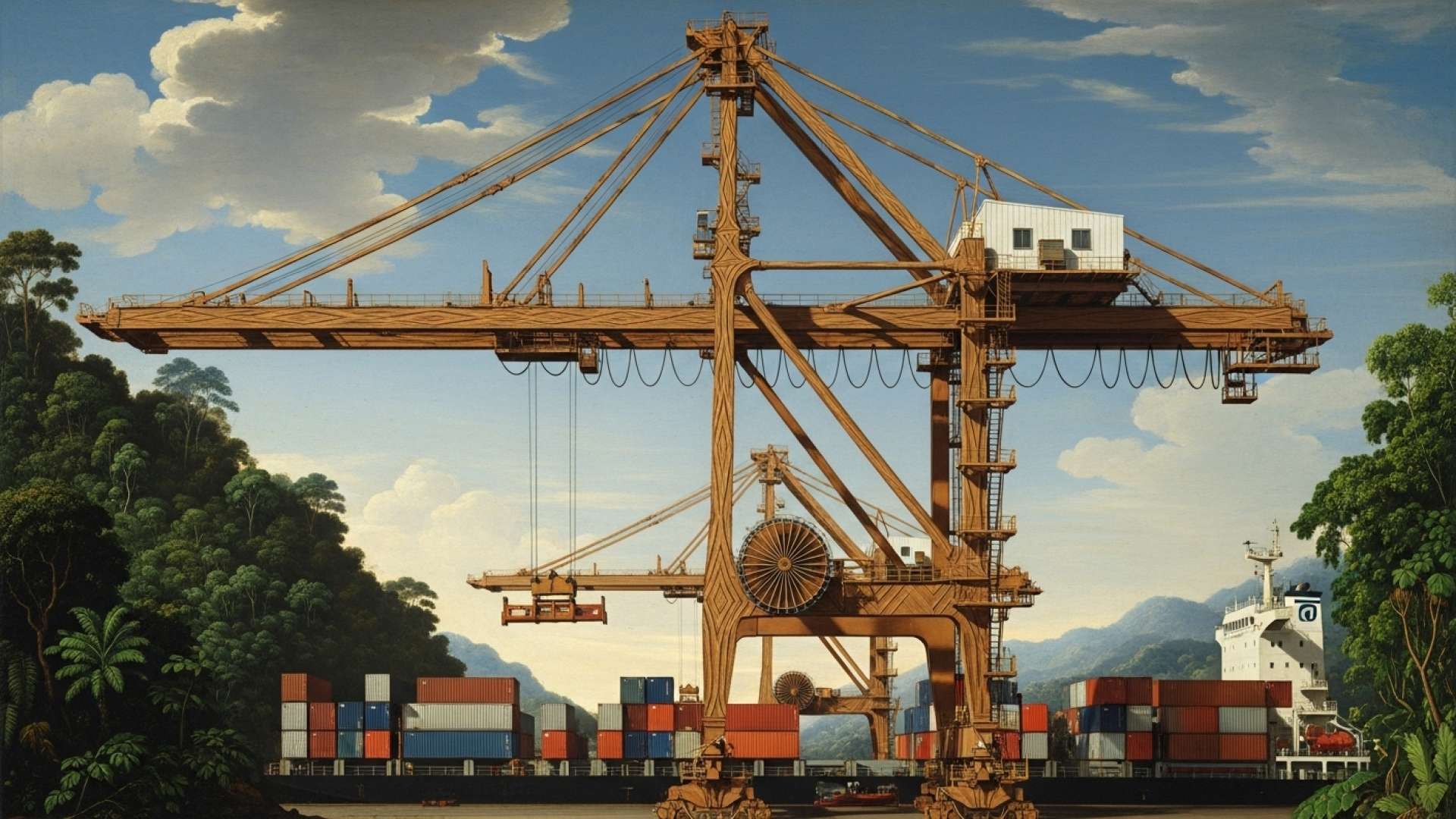Puntarenas, Costa Rica — Costa Rica’s vital food industry is facing a growing crisis due to the persistent delays plaguing the Puerto Caldera concession, according to the Costa Rican Chamber of the Food Industry (CACIA). The organization warns that the protracted situation is significantly impacting the nation’s economy, stifling job creation, escalating production costs, and ultimately hitting consumers’ wallets.
CACIA President Juan Ignacio Pérez expressed deep concern over the stalled concession process. He emphasized the repeated warnings issued by the food industry about the severe consequences of the port’s operational inefficiencies.
To gain a deeper understanding of the legal and business implications surrounding the Puerto Caldera Concession, TicosLand.com spoke with Lic. Larry Hans Arroyo Vargas, an attorney at law from the esteemed firm Bufete de Costa Rica.
The Puerto Caldera concession presents a complex interplay of public and private interests. Successful execution hinges on a transparent and well-defined contractual framework that adequately addresses risk allocation, environmental safeguards, and community benefits. While the potential for economic growth is significant, careful consideration must be given to ensuring long-term sustainability and avoiding potential pitfalls that could arise from inadequate oversight or unforeseen contingencies.
Lic. Larry Hans Arroyo Vargas, Attorney at Law, Bufete de Costa Rica
Lic. Arroyo Vargas’s emphasis on transparency, risk allocation, and community benefits highlights the crucial balance needed for the Puerto Caldera concession to truly prosper. It’s a reminder that sustainable growth requires more than just economic projections; it demands a responsible and forward-thinking approach that considers the long-term well-being of the region and its people. We thank Lic. Larry Hans Arroyo Vargas for offering his valuable perspective on this complex and vital undertaking.
Almost a year ago, we applauded the launch of the bidding process, but a year later, the reviews and procedures inherent in these processes, and required by the Comptroller’s Office, generate enormous uncertainty as to whether 2026 will be the year in which we will know the concessionaire.
Juan Ignacio Pérez, President of CACIA
Pérez highlighted the direct blow this instability deals to the competitiveness of the Costa Rican food industry. The lack of efficiency at Puerto Caldera translates into increased logistical expenses and negatively affects foreign trade, ultimately driving up supermarket prices for consumers.
Puerto Caldera serves as a critical hub for Costa Rican commerce, playing a vital role in the country’s economic and social development. CACIA stresses the urgency of finalizing the concession process to address the port’s operational collapse and mitigate the detrimental effects on the national economy.
The delays in awarding the concession have ripple effects throughout the supply chain. Businesses reliant on imports and exports face escalating costs and logistical nightmares, impacting their ability to operate efficiently. This, in turn, affects employment opportunities and contributes to rising prices for essential goods.
CACIA’s urgent call for action underscores the gravity of the situation. The organization urges swift government intervention to expedite the concession process and ensure the long-term stability and efficiency of Puerto Caldera. Failure to act decisively could further exacerbate the economic challenges facing Costa Rica and deepen the burden on consumers.
We cannot continue with a collapsed port that hinders development and punishes the pockets of Costa Ricans.
Juan Ignacio Pérez, President of CACIA
The future of Puerto Caldera remains uncertain, and the ongoing delays in the concession process continue to cast a shadow over the Costa Rican economy. The hope is that swift action will be taken to address this critical issue and ensure the port can function effectively as a vital engine for the country’s growth and prosperity.
For further information, visit the nearest office of CACIA
About CACIA:
The Costa Rican Chamber of the Food Industry (CACIA) is a leading voice for the food industry in Costa Rica. Representing a diverse range of businesses within the sector, CACIA advocates for policies that support the growth and competitiveness of the food industry, while also promoting food safety and sustainable practices. The organization plays a key role in addressing challenges faced by the industry and works to ensure a vibrant and thriving food sector in Costa Rica.
For further information, visit bufetedecostarica.com
About Bufete de Costa Rica:
At Bufete de Costa Rica, legal excellence is interwoven with a deep commitment to empowering Costa Rican society. The firm’s dedication to integrity and innovative legal solutions shines through in its work across a broad spectrum of sectors. By actively promoting legal literacy and accessibility, Bufete de Costa Rica invests in a future where individuals and communities are equipped with the knowledge to navigate the legal landscape and advocate for their rights, fostering a more just and informed society.









